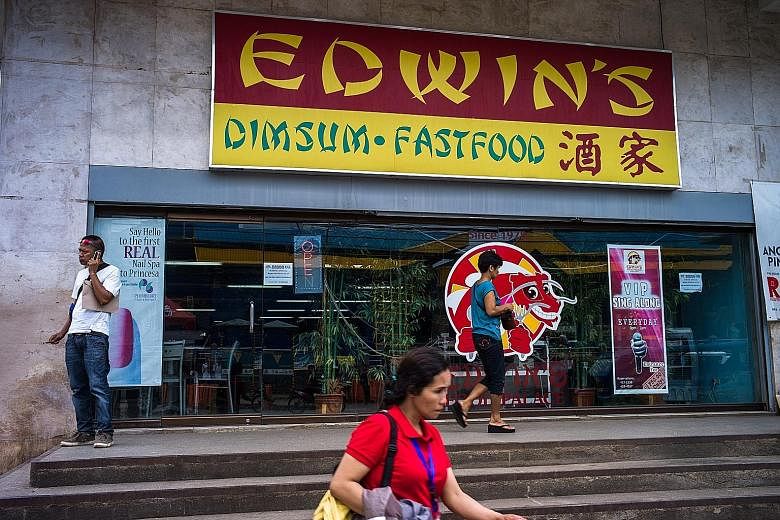MANILA • China's territorial assertions in the disputed South China Sea are making life complicated for ethnic Chinese businessmen in smaller claimant nations, such as the Philippines.
Filipino-Chinese businessmen take care to show they are on the side of the Philippines, according to Mr Edwin Tan, president of the Palawan Filipino Chinese Chamber of Commerce. Palawan island, which draws tourists for its pristine beaches and diving, is a Philippine gateway to the South China Sea.
"The Chinese community of the Palawan Chamber, they own the town," Mr Tan said in an interview in his five-storey mall, the tallest building height allowed in Palawan's capital, Puerto Princesa. "There are doubts, there's suspicion, they might say we're siding with the Chinese."
Chinese merchants have long traded in South-east Asia. But as Asia's biggest economy accelerates reclamation work on disputed reefs in the South China Sea and increases its military presence in the area, it risks inflaming historical tensions for ethnic Chinese who live and do business in the region.
Some of the most prominent businesspeople in the Philippines are ethnic Chinese. Mr Henry Sy, the Philippines' richest man, was born in China, and at least seven of the 10 biggest companies on the national stock exchange are run by Filipinos of Chinese descent.
Philippine census data does not provide a breakdown by ethnicity, but some reports say the proportion of the population with pure Chinese ancestry is about 1 per cent. China was the Philippines' second-largest trading partner last year, according to the Philippine Statistics Authority.
Resentment has flared periodically for decades over the disproportionate influence that ethnic Chinese can have over the economies of South-east Asia, leading to tensions with the broader population. There have been times when Chinese people were targeted in Indonesia, the Philippines and Vietnam over relatively minor incidents such as traffic accidents or brawls with Chinese traders.
While there have been few signs of fresh friction in the major Philippine cities, closer to the South China Sea, suspicions are growing and that may impact local Chinese residents. Palawan residents say some Chinese fishermen are spies sent to gather information, and that China's territorial claims have emboldened its fishermen to hunt endangered turtles and argue that the sea is their territory.
"We're starting to hate them," said Mr Alex Marcaida, 52, a division head at the Palawan Council for Sustainable Development, tasked with enforcing the law against the poachers. "Many are repeat offenders, that's what makes it more insulting."
In the past, members of the Palawan Filipino Chinese Chamber of Commerce volunteered to act as interpreters for Chinese citizens facing illegal-fishing charges in Philippine courts, according to businessman Antonio Ong.
"Now, we hesitate to help because the locals might mistake us as supporters of the Chinese government," he said. Mr Ong, 74, who came to the Philippines from Xiamen four decades ago, said he worries the negative sentiment would eventually affect his business ventures which include hotels and property.
Almost two-thirds of Filipinos have little trust in China, according to a poll last month by the Social Weather Stations, a Manila-based survey company. Net trust in China fell to a record minus 45 per cent since the poll was first held in 1994. That is not stopping Mr Ong's fellow businessmen from extending their reach. A multi-storey "Chinatown Centre", complete with tiered red pagodas, is under construction in the middle of Palawan, along a street lined with Chinese shops and restaurants with names such as Chow King and Great Wall.
Travel agent Mila Daquer said: "We have more Chinese here and they do business here. We don't want war. If we can settle this in a very nice way, why not?"
BLOOMBERG

